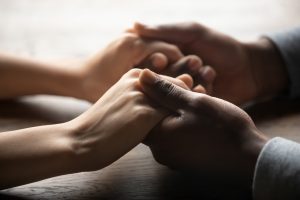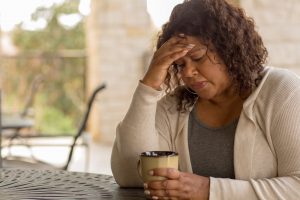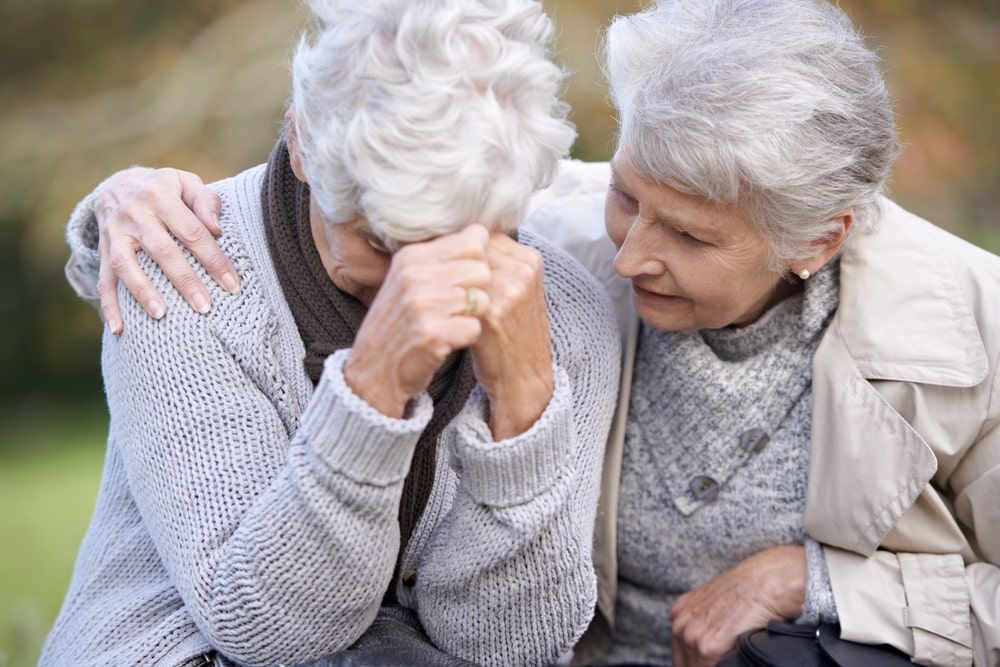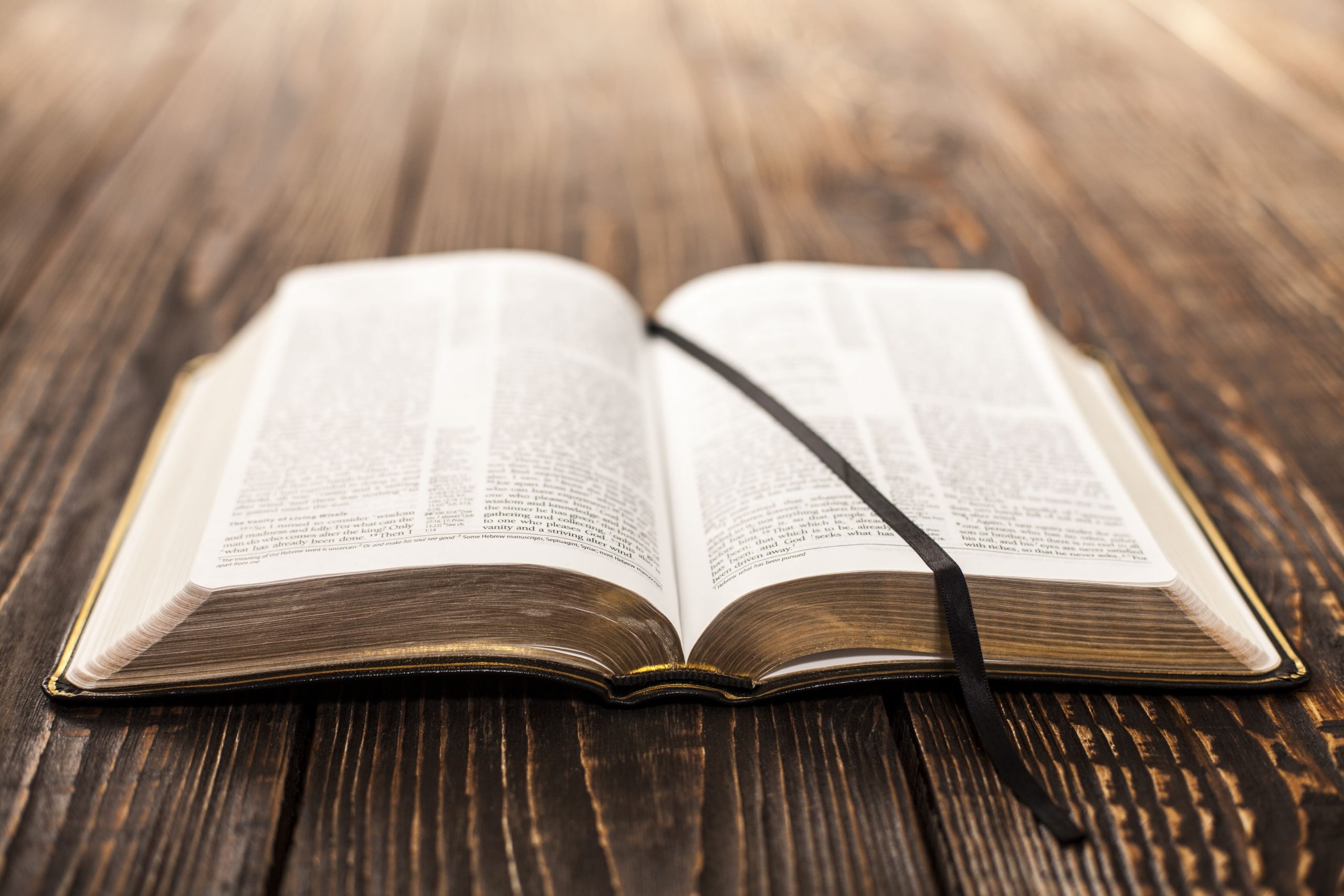If you’ve recently lost a loved one or you have a loved one currently in hospice care, you may be wondering about how “normal” your feelings of grief are. It’s important to realize that grief is different from person to person, so your grief journey is going to look different than anyone else’s (including your close family members). While many people experience “normal grief,” it’s possible that your experience may be different. If you feel like your grief is misunderstood or unacknowledged or that you’ve been overlooked, then you may be experiencing disenfranchised grief. Let’s unpack disenfranchised grief and the impact it has on grieving people the world over.
First, What is Normal Grief?
Before we dive into disenfranchised grief, it’s important that you understand what normal grief is. In short, grief is your natural human response to the loss of someone or something you love. The emotions of grief vary greatly – sadness, anger, guilt, relief, shock – but they are all normal responses to loss. As much as you may prefer not to feel or deal with these types of emotions, they are actually a healthy part of the grieving process.
Grief is often accompanied by age-old rituals that bring people together to grieve. But what if your grief is unacknowledged, no one stopped to listen to you, and there were no sympathetic words?
Enter Disenfranchised Grief
First coined by Dr. Kenneth Doka, “disenfranchised grief” is complicated, but put in the simplest terms, it is grief that is not openly acknowledged, socially sanctioned, or publicly mourned. Often, the grief is minimized or not understood.
When your feelings of grief aren’t acknowledged or are minimized, you may begin to feel that your grief is inappropriate, invalid, or unacceptable in some way. And naturally, when you feel that your emotions are shameful, you are less likely to share what you’re feeling but will instead internalize it. Disenfranchised grief is often lonely, private, and you may feel that there must be something wrong with you for feeling this way.
On top of that, disenfranchised grief isn’t black and white; it’s very subjective. Two people may experience the exact same loss, but for one, the loss is openly acknowledged and mourned while for the other, it is minimized. Though they experienced the same loss, for one of them, it was disenfranchised.

As someone who is entering hospice, you may experience disenfranchised grief in three different ways:
# 1 – Unrecognized Relationships
If you are in hospice, it is natural to want to reach out to previous relationships to find closure, forgiveness, or reconciliation. But perhaps the relationship was private or estranged or you are grieving someone you who has already passed away. In this situation, your grief over past relationships may not be recognized or understood by others. In some cases, your relationship may even be a source of contention and pain to close family members.
With these factors in place, you may feel unable to mourn in the usual way and could end up internalizing the pain because you have no external outlet. When a relationship isn’t recognized, you may not be viewed as a griever so people don’t see or understand the depth of your feeling. A few examples of this are an ex-spouse, estranged relative or friend, or a relationship you kept private.
#2 – The Loss is Unacknowledged or Deemed Less Significant
By far, many forms of disenfranchised grief are minimized by others. When a loss is unacknowledged or is deemed less significant, then it falls into disenfranchised grief. Oftentimes, these losses don’t fall into a group’s accepted definition of grief.
When your grief is found unacceptable by someone, or even uncomfortable, it may hinder your ability to grieve well and openly, which could make a stressful time even more stressful. If you are a hospice patient, naturally others around you are grieving the loss of your health in their own ways, so they may not see the losses that you need to mourn, too. Some examples of when a loss is unacknowledged or deemed less significant are:
- Estrangements
- Job loss
- Pets you will leave behind
- Loss of health
- Loss of independence
- Not being able to be there for future milestones for children and grandchildren
- Not being able to accomplish something you wanted to accomplish
- Loss of financial stability
- Feeling like a burden on others
Because your loved ones may be consumed by their own grief, they may not be able to see or acknowledge your grief as valid.
#3 – Stigma Surrounds the Loss
A sense of grief that is stigmatized can also lead to disenfranchised grief. Sometimes an illness is stigmatized in some way, and loved ones are uneasy with the condition of the person in hospice, which only leads to a more painful experience. Sometimes loved ones just don’t know what to say or how to act. Any time that shame or embarrassment are present with grief, there is a chance that the grief may be disenfranchised.
Overall, disenfranchised grief means that what you’re feeling isn’t accepted by someone you deem important. This could be society as a whole, family, friends, or even yourself. After all, you can convince yourself that you have no right to grieve this loss. Unfortunately, that attitude won’t stop the feelings or help you work through them. You may feel judged or criticized by others for your grief, so, what can you do?
Three Suggestions to Help You Move Toward Healing
First of all, if you are going through disenfranchised grief right now, you’re not alone and your grief is valid. You have nothing to be ashamed of or embarrassed about. Grief is a natural response to the losses in our lives – no matter what form that loss takes. Now, let’s talk about three suggestions for moving toward healing as you work through your disenfranchised grief.
Validate the Loss Within Yourself
While it’s helpful to have others validate your feelings, it’s not necessary to move toward healing. The most important thing is for you to realize – within yourself – that your feelings of grief are real and legitimate. It’s okay if the people around you don’t fully understand. The most important person to validate your loss is you. Work toward acknowledging that you feel what you feel and it’s all part of the grief journey.
An important note – the grief that children feel is often overlooked or unacknowledged, so take extra effort to listen, validate their feelings, and offer support to the children in your life who are grieving.
Find Supportive People
As you work toward fully realizing and accepting that your loss is valid and worth grieving, find supportive people to talk to. You need people who won’t minimize your feelings but will accept and support you wherever you are on the grief journey. You might start with an understanding close friend, family member, or mentor. Additionally, consider sitting down with a support group or a therapist. Sometimes, you just need to talk with people who understand what you’re feeling and can help you identify it. Once you’ve named your emotions, you can better communicate your feelings to the other people in your life.
If you’ve been dealing with disenfranchised grief for a while, then you might strongly consider talking with a grief counselor or therapist. They can help you understand your feelings, realize that it’s okay to grieve, offer a safe place to express yourself, and provide resources that will help you move toward healing.
Participate in Healing Rituals
Dr. Alan Wolfelt, a nationally recognized grief counselor, author, and educator, often says “When words are inadequate, have a ritual.” Normally, when we lose a person we love, we have a funeral or memorial service to honor and remember them. However, with disenfranchised grief, you may not have the opportunity to attend a funeral. And if you’ve lost something else, a ceremony isn’t possible. However, the principle remains the same – you can participate in healing rituals to help you engage with your feelings and begin to release them in a healthy way.
While there may not be an official ritual available, you can create your own. Write a letter to say all the things you’ve wanted to say. Create a memory box or book with mementos and reminders. Find a creative way to process through your feelings. Use the healing power of a symbolic ritual that expresses your feelings in some small way.
Processing what you’re experiencing is hard work, but it’s so important to your quality of life and sense of peace. Unaddressed grief can lead to additional pain, depression, and mood swings. Instead of listening to those who might try to minimize your grief, take time to listen to your feelings. Surround yourself with supportive people and find a way to participate in healing rituals. Whatever grief you’re feeling, it’s real, it’s legitimate, and you have a right to do the work of grieving that loss.








